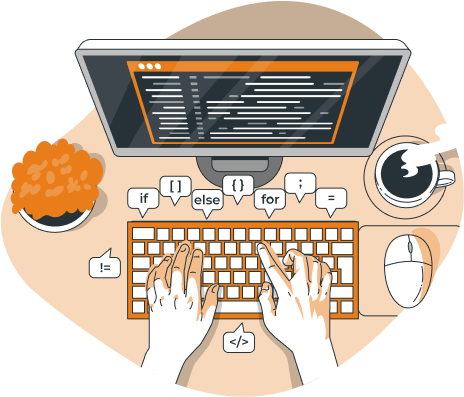
Objective-C online coding platform
Objective-C is an object-oriented programming language that is widely used for developing applications for Apple's macOS and iOS operating systems. It is a high-level language that is known for its dynamic binding, reflection, and late binding capabilities, which allow developers to write flexible and extensible code.
Objective-C is built on top of the C programming language and shares many of its syntax and features. It adds support for object-oriented programming concepts such as classes, objects, and methods, as well as a dynamic runtime that allows developers to add new behavior to existing classes at runtime.
Objective-C is often used to develop applications for the Apple ecosystem, including desktop applications, mobile apps, and other software that runs on macOS and iOS. It is also used to develop libraries and frameworks that can be used by other applications.
If you are new to Objective-C, there are many resources available to help you learn the language, including online tutorials, books, and community forums. There are also a number of tools and libraries available for working with Objective-C, such as IDEs, testing frameworks, and libraries for data management and networking.
Try NowObjective-C online coding platform
RunCode allows users to write and run code in a variety of programming languages, including Objective-C, online. The platform provides a web-based code editor and an integrated development environment (IDE) that users can use to write, edit, and run code. It also includes features such as syntax highlighting, debugging tools, and support for multiple programming languages.
To use Objective-C on RunCode, you will need to have a script or program written in Objective-C that you want to run. You will also need to make sure that you have an Objective-C compiler installed and available on the system where you are running the code.
To compile an Objective-C program, you can use the gcc compiler with the -o flag to specify the name of the output binary file, and the -lobjc flag to link against the Objective-C runtime library. For example:
Copy codegcc -o mybinary -lobjc mysource.m
This will produce an executable binary file named mybinary that you can run using the ./ command. For example:
Copy code./mybinary
Keep in mind that you will need to make sure that the appropriate Objective-C runtime library is installed and available on the workspace where you are running these commands. If the library is not installed, you will need to install it first before you can use it.

Online Objective-C Platform for Web, API, Data Science, and Console Apps
Get 100 hours of free access to our cloud development platform each month! We offer special discounts for startups, educational institutes, co-working spaces, students, and online coding communities. If you're a student, you can even get unlimited free access for the duration of your academic years. Contact us to learn more and take advantage of these exclusive offers. Don't miss out on this opportunity to access our powerful platform at no cost.
Try for free
